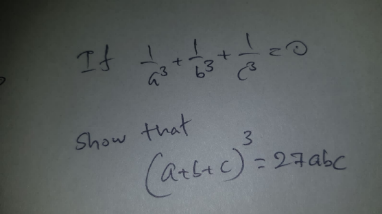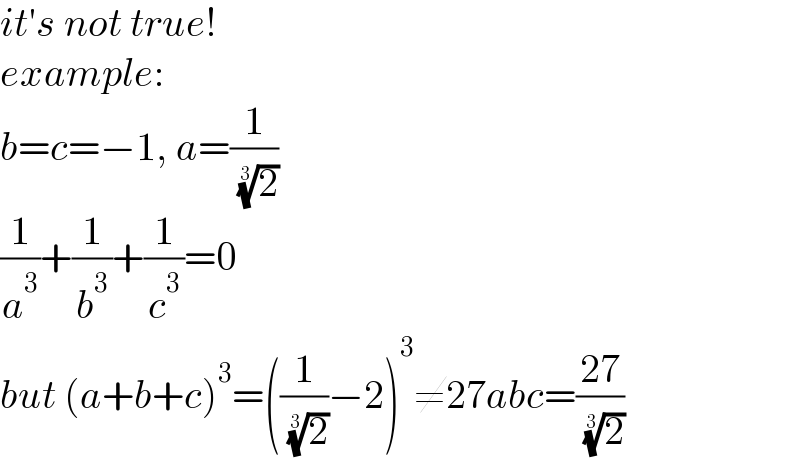Question Number 137700 by peter frank last updated on 05/Apr/21

Commented by mr W last updated on 05/Apr/21

$${it}'{s}\:{not}\:{true}! \\ $$$${example}: \\ $$$${b}={c}=−\mathrm{1},\:{a}=\frac{\mathrm{1}}{\:\sqrt[{\mathrm{3}}]{\mathrm{2}}} \\ $$$$\frac{\mathrm{1}}{{a}^{\mathrm{3}} }+\frac{\mathrm{1}}{{b}^{\mathrm{3}} }+\frac{\mathrm{1}}{{c}^{\mathrm{3}} }=\mathrm{0} \\ $$$${but}\:\left({a}+{b}+{c}\right)^{\mathrm{3}} =\left(\frac{\mathrm{1}}{\:\sqrt[{\mathrm{3}}]{\mathrm{2}}}−\mathrm{2}\right)^{\mathrm{3}} \neq\mathrm{27}{abc}=\frac{\mathrm{27}}{\:\sqrt[{\mathrm{3}}]{\mathrm{2}}} \\ $$
Commented by peter frank last updated on 05/Apr/21

$${thank}\:{you}\:{so}\:{much}\:{for}\:{confirmation} \\ $$
